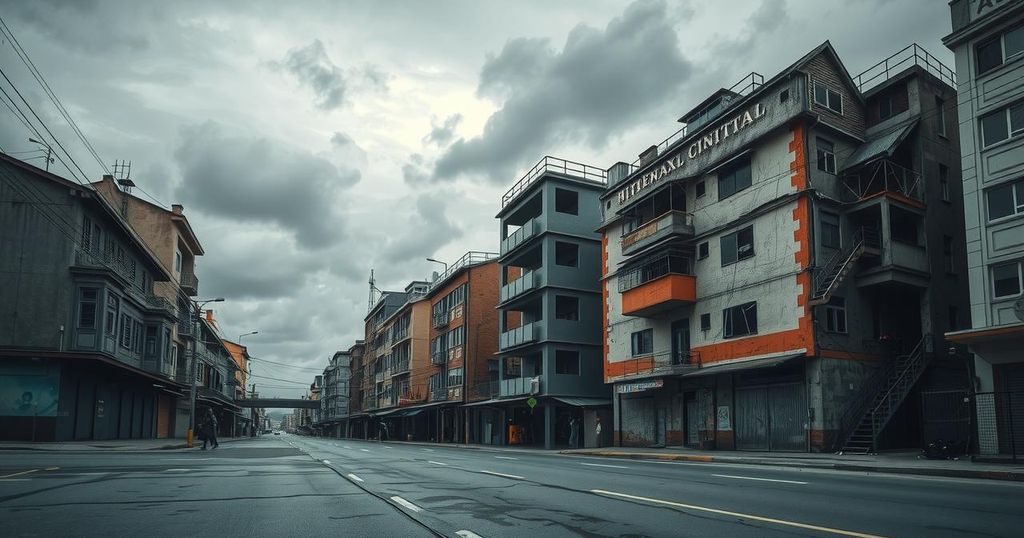Former Philippine President Rodrigo Duterte’s arrest marks a turning point for accountability regarding his administration’s war on drugs, which resulted in thousands of extrajudicial killings. His actions are under investigation by the International Criminal Court for crimes against humanity. Despite this progress, serious concerns persist about the safety of environmental and human rights defenders due to residual policies from Duterte’s term—raising questions about the future of advocacy and civil society in the Philippines.
Former Philippine President Rodrigo Duterte’s arrest on March 10, 2023, has been viewed by many as a significant development for the victims of his notorious war on drugs, characterized by thousands of extrajudicial killings. His detainment followed a warrant from the International Criminal Court (ICC), leading to his swift transportation to The Hague, where the ICC is based. Despite vehemently defending his actions, Duterte has garnered both criticism and support following his arrest, drawing attention to the enduring consequences of his policies on law and civil society in the Philippines.
The ICC’s action against Duterte was based on substantial allegations against him, reportedly concerning crimes against humanity arising from his administration’s campaign against illegal drugs from 2016 to 2022. Prior to his arrest, the ICC conducted a preliminary investigation into Duterte’s actions, which was halted when the Philippines withdrew from the court in 2019. The ICC concluded that it retained jurisdiction concerning events that occurred prior to this withdrawal, prompting the current investigation into his administration’s actions.
The ICC operates as a court of last resort, designed to intervene only when national authorities fail to investigate severe crimes. With Duterte’s arrest, the judicial process will now move toward pre-trial proceedings, where judges will assess the evidence against him. Importantly, Duterte is the first former Asian head of state to face such charges, and this case could set precedents for international law concerning political accountability.
Under Duterte, the war on drugs resulted in a multitude of fatalities, with official records noting over 6,000 deaths, while international human rights organizations estimate the number may reach 20,000. Furthermore, a United Nations report indicated that thousands died, including young children, amid claims of systematic police violence framed as self-defense. The ICC aims to investigate these suspected human rights violations comprehensively.
The consequences of Duterte’s policies have not only affected those involved in the drug trade but have also negatively impacted environmental and human rights defenders. The normalisation of extrajudicial killings fostered an atmosphere of fear, allowing economic and political elites to silence dissent violently. Despite Duterte’s arrest, experts express skepticism about whether this will lead to a safer environment for activists, given structures still in place that facilitate violence against them.
Political analysts have raised concerns that President Ferdinand Marcos Jr.’s administration continues to uphold detrimental policies from the Duterte era, including the Anti-Terrorism Act and the operational mandates of the National Task Force to End Local Communist Armed Conflict (NTF-ELCAC), both of which have been linked to human rights abuses. Advocates highlight the need for reevaluation of these policies to establish a more protective legal framework for defenders.
In summary, while Duterte’s arrest may symbolize accountability at a global scale, the path toward improving safety for environmental and human rights activists within the Philippines remains uncertain. Abiding concerns about the efficacy of existing policies and the ongoing threats posed by corporate interests underscore the complexity of the situation. The continued advocacy for justice and human rights remains crucial as the nation seeks meaningful change in the wake of the controversial administration.
Duterte’s arrest signifies a potential shift in the accountability landscape concerning human rights violations constructed under his presidency, particularly in relation to the war on drugs. However, the existing framework of policies enacted during his administration poses heavy barriers to safety for activists. The ongoing implications for law and civil society are critical, as the Philippines navigates the legacies of past administrations while striving for comprehensive reforms that prioritize human rights, environmental protection, and accountability for perpetrators of violence. Advocacy remains vital in fostering a more just environment for all citizens.
Original Source: www.eco-business.com






